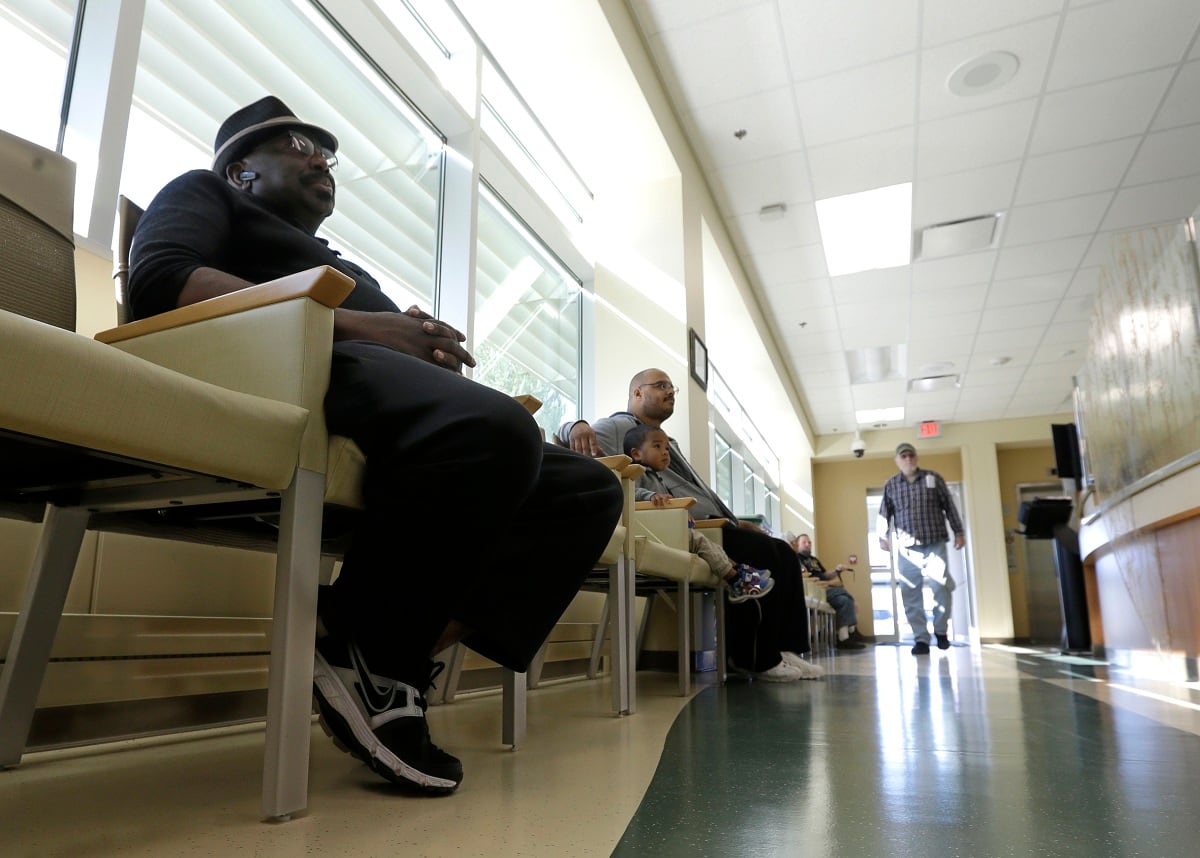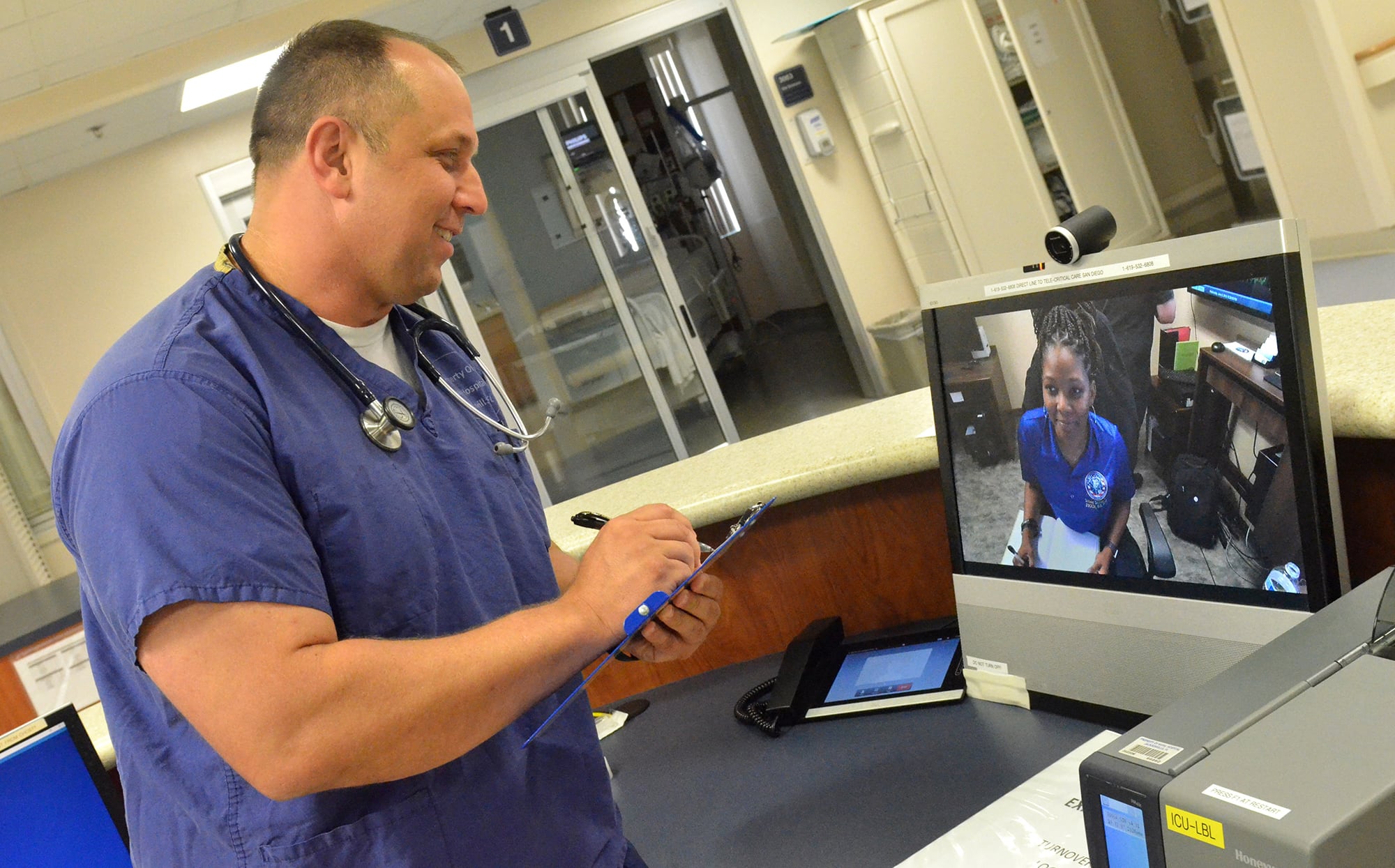Veterans Affairs officials will look at including patients’ access to telehealth services as part of their eligibility for outside care programs, a move that could dramatically change what community care options are available for veterans in coming years.
Supporters say the move is a common sense response to how healthcare is delivered in the wake of the coronavirus pandemic.
But department critics charge that the real goal is to force more patients to stay in the VA medical system, rather than giving them better options in the private sector.
RELATED

In testimony before the Senate Veterans’ Affairs Committee on Wednesday, VA Secretary Denis McDonough said no decisions have been made yet on how those telehealth options will be factored in and emphasized that no changes in eligibility standards are being made now.
But he said officials are considering unveiling new standards in coming months.
“I intend to carefully consider and propose such a change,” he told lawmakers. “We’re finding more and more veterans getting care by telehealth, and we want to be able to update the access standards in that way.
“We’re going to do it consistent with the law and consistent with getting good public input.”
McDonough disputed accusations that his administration is trying to dismantle the community care program, noting that the department approved 33 million appointments outside of the VA medical system in fiscal 2021.
“Nobody’s trying to limit a veteran’s access to the best available care,” he said.
The secretary’s comments come at a time when VA community care programs are again coming under scrutiny because of their availability to veterans and cost to the department.
Under current program rules, veterans who are enrolled in department health care can visit a private sector physician with VA picking up the cost if they meet certain criteria. They include facing lengthy wait or travel times for department care, or if VA does not provide a specific type of medical service.
The idea is to ensure that veterans receive medical care as soon as possible, even if VA physicians aren’t directly providing it.
Before Congress approved the MISSION Act (which eased those eligibility standards for outside care) about 25% of all medical appointments paid for by VA were handled outside the department’s system. That percentage rose to more than 29% from March 2021 to February 2022.
An analysis by the RAND Corporation found the budget for that outside care more than doubled from fiscal 2014 to fiscal 2021, when spending topped $18.5 billion. The fiscal 2023 budget calls for it to increase even higher, to about 23% of all Veterans Health Administration spending.
RELATED

Democrats and Republicans for years have argued whether increasing those outside appointments more equates to improving choice for veterans or slowly undermining the VA medical system.
Several Democratic senators at the hearing noted that outside physicians do not need to meet the same wait time and quality standards as VA clinics, calling into question whether veterans are getting better or worse care outside the VA system.
Factoring VA’s telehealth options into eligibility standards could complicate the fight even further.
The year before the coronavirus pandemic, the department averaged fewer than 20,000 online remote medical appointments a month. By the end of 2021, in response to face-to-face precautions put in place to limit the spread of the virus, that number had jumped to more than 800,000 a month.
VA officials have pledged to make those remote medical appointments a permanent part of their future care plans. But whether expanded access to online appointments will make veterans ineligible for a taxpayer-funded, in-person meeting with outside physicians remains to be seen.
RELATED

“This could be a way that VA could manipulate numbers and prevent veterans from seeking care outside of VA,” said Sen. Marsha Blackburn, R-Tenn. “We have veterans who like to receive care in person, so that is a concern.”
McDonough told committee members that is a key issue that officials need to consider when reviewing the community care changes. He did not offer a timeline on when a proposal would be made public, but promised close coordination with lawmakers before it is released.
Expanding community care was a major priority of former President Donald Trump’s administration and Republican lawmakers when they controlled the House and Senate. If GOP leaders win back control of either chamber in November, it will likely mean more challenges for VA leaders to propose any new limits on outside care options for veterans.
Leo covers Congress, Veterans Affairs and the White House for Military Times. He has covered Washington, D.C. since 2004, focusing on military personnel and veterans policies. His work has earned numerous honors, including a 2009 Polk award, a 2010 National Headliner Award, the IAVA Leadership in Journalism award and the VFW News Media award.





